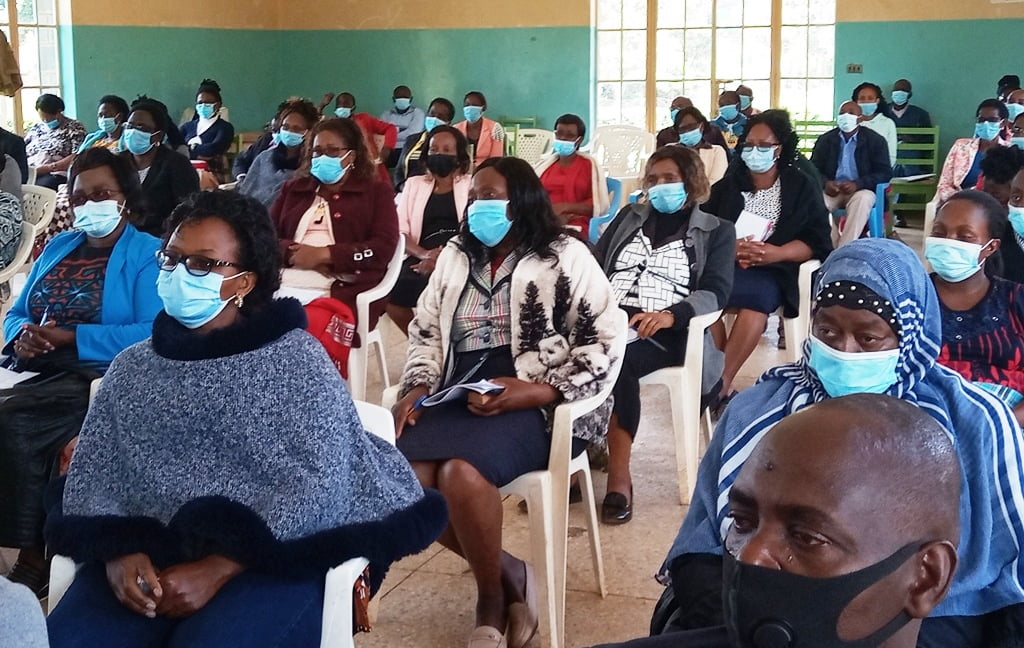By Robert Nyagah
Psychiatrists and mental health experts have called for the mainstreaming of this field of knowledge at school level for the benefit of young learners in the wake of increasing number of children and adults in need of psychological counselling and medical attention.
Incidents of suicide among learners, including extreme anti-social behaviour, have often been reported but mental health at family level and among children at early childhood education stages has been widely ignored.
Research carried out by four psychiatrists at the University of Nairobi, Department of Psychiatry, College of Health Sciences Anne Wanjiru Mbwayo, Muthoni Mathai, L.I. Khasakhala, Mary Wangari Kuria, and Ann Vander Stop, revealed that teachers lacked any knowledge on how to identify or even handle mental health issues among pupils and students at their institutions.
In the report entitled “Mental Health in Kenya Schools-Teachers Perspectives“, it emerged that teachers faced serious challenges in dealing with students with mental health problems. Majority confessed they could not deal with problems manifested by the students due to lack of training on many mental health problems of students.
Majority of teachers only thought of stress among students as a possible mental health problem.
Most seminars attended by teachers were on academics and not on emotional or behavioural problems of children against a background where mental health problems among pupils and students and generally among children was widespread.
Most teachers interviewed by the psychiatrists said that psychological issues were rarely incorporated in their teaching adding that at colleges no course was tailored towards dealing with abnormal students.
Most incidents of abnormality, the experts learned, are normally treated as indiscipline and dealt with from a discipline point of view against a background whereby teachers are always weighed down by full loads of lessons leaving little time to discern antisocial behavior among learners.
Even the teachers who are trained in counseling, it emerged rarely had adequate time to deal with problems presented to them by students. Such teachers are given as many lessons as the rest leaving them with limited time to interact with the students and counsel those requiring their assistance.
Most teachers felt that they had too much in their hands to tackle mental health issues hence that area of specialization should be dealt with by a different office. Many mental health problems affecting students even when noticed by counselling and guidance teachers are never fully pursued by the school heads. They rather prefer to get rid of the affected.
Counselling teachers reached by the Psychiatrists said that most school heads sometimes look at the problem as student’s defiance, most choosing to transfer the affected student from the involved school.
The research revealed that in most instances obedient, tidy and hardworking students with learning problem were strangely retained by many a school head just because they did not causing any trouble at school.
Parents according the research were identified as a challenge also with majority being in denial mainly choosing to avoid any advice to seek medical of psychological attention from experts even after counseling and guidance teachers identified problems with their children.
The experts noted that some parents feared being stigmatized by society and did not want their children to be known to suffer any mental health problems.
Generally it is emerging as the experts argue that Kenya’s education was structured in ways that did not accommodate the students with mental health problems and such students are normally transferred from one school to another.
The research concludes that there is the need to mainstream mental health programs in schools instead of the present scenario where students in need of mental health treatment are merely punished.
But even as the experts continue to campaign for the mainstreaming of mental health issues at school, pushed by worsening indicators that poor mental health among children is on the rise and in need of urgent intervention, stakeholders are coming up with programs to tackle the problems.
Various organization have launched mental health education programs targeting children’s mental wellness and are mainstreaming the same through seminars, workshops and other training channels for people who interact more with children right from parents, Sunday school teachers, pastors and teachers among other stakeholders.
Most of the organizations are confronting this sometimes widely ignored but important area of health with complete and professionally drawn training manuals for the beneficiaries with opportunities for them to earn professional acceptable certificates.
Although the challenge is to have those undergoing the training – sometimes quite academic in nature became conduits for the knowledge, according to those who completed, the main goal of the training programs is to ensure people interacting with children are aware of mental health challenges.
Course participants are helped to identify mental health problems among children, to initiate means to resolve the problems or refer any client to qualified professional such as psychiatrists and counselors.
Experts under the Scripture Union of Kenya (SUK) have been in the forefront with efforts to tackle mental health among children especially at family level having already authored a manual to train Kenyans in this area.
The Scripture Union Manual on Mental Health and Wellness is entitled “IT’S OKAY NOT TO BE OKEY” and a foreword SUK national director Nancy Kahuthia indicates that this organization was keen to continue advocating for and supporting children and their families’ spiritual and psychological needs and wellbeing.
Through various Churches and other stakeholders SUK had already started major training programs across the Country to equip mental health facilitators who are presently already acting as first level respondents in the mental health caregiver’s continuum.
“The goal was to facilitate an integrated program which will bring hope, healing and health to young people and families in the country” indicate the Directors.
Various seminars and workshops are presently being held across various parts of Kenya under SUK facilitators with most of beneficiaries of the course especially Sunday school teachers and parents appreciating that they have not been tackling their children’s mental issues professionally.
“The course has made me realize that mental health issues especially among children are ignored with most parents merely taking them as disciplinary issues” said Mrs. Annie Kamau, a mother of three from Muthatari area in Embu who underwent the training.
She confessed that onwards, she would be more observant and professional in dealing with her children and others to ensure that mental health issues were incorporated at family and community level for the wellbeing of children.






